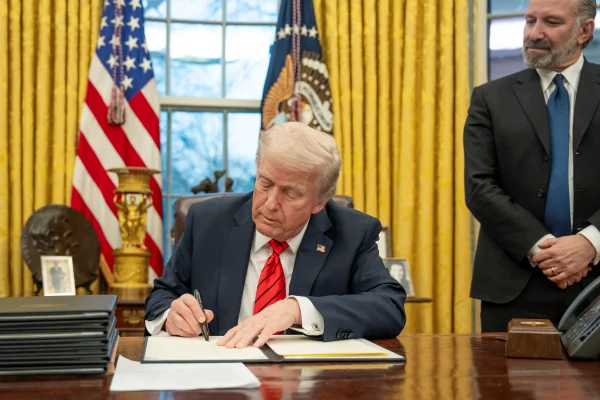Pope Francis: An Air of Change for the Catholic Church
An in-depth interview with Pope Francis, released September 19, is making headlines for its surprising content, particularly on sexual morality. In it, the Pope made his intent clear: focus on love and charity, not controversial dogma.
“We cannot insist only on issues related to abortion, gay marriage, and the use of contraceptive methods,” the Pope said in the interview with fellow Jesuit priest Antonio Spadaro of America Magazine. The Pope criticized the church for fixating on these topics rather than what he deems to be the most important part of the Catholic faith; love. When asked about whether the church needs reform the Pope explained that “the church sometimes has locked itself up in small things, in small-minded rules.” His hope is that this will change in the near future and that the church’s focus will shift towards “bigger” things.
These are the first comments on sexual morality the Pope has publicly made during his papacy. The last two popes, Benedict XVI and John Paul II, were known to comment frequently on these three controversial issues, but Francis has not done so, saying: “I have not spoken much about these things, and I was reprimanded for that”.
The Pope made it clear the church’s position against abortion, gay marriage, and contraceptive methods has not changed. The difference between Francis and his predecessors lies in what Laurie Goodstein of the New York Times calls a change in “tone”. Many liberal Catholics have felt alienated by past popes and their conservative counterparts during heated debates on sexual morality. Now, they are filled with hope that Francis’s goal to shift focus onto other subjects will mark a favorable change in the church.
On the subject of homosexuality, the Pope has notably stated “I am not one to judge”, a clear difference from his predecessor Benedict XVI who has called homosexuality “an intrinsic moral evil” and “an objective disorder”. Some see this comment as an olive branch extended towards the gay community from the Catholic church, even though the Pope still upholds the belief that homosexuality is a sin.
Women in the Catholic church are not allowed to be priests, which in turn bars them from holding important roles in the church’s hierarchy. Many Catholic women find this to be unreasonable and are vocal about the need for change. The Pope agrees that “it is necessary to broaden the opportunities for a stronger presence of women in the church,” further demonstrating his acceptance and responsiveness to those who have felt
marginalized by the church. However, the Pope sustains the belief that women could never be priests.
According to a survey done by Pew Research, the Pope is popular with American Catholics. Seventy-nine percent of U.S. Catholics rate the pope favorably, 4% unfavorably, and 17% say they have no opinion. Though the Pope has been criticized by traditionalist Catholics for his contemporary ways, his approval rating remains high, showing that most Catholics are actually in support of Pope Francis.
Pope Francis’s papacy has had an air of change about it from the start. Pope Francis is from Argentina, making him the first Pope from the Americas. South America is home to 28% of the world’s Catholics, more than any other continent. His election was important to a huge population of Catholics who had felt underrepresented in the Vatican. Francis is also the first Pope of the Jesuit order. In the past, the Vatican and the Jesuit order have had a tense relationship because of their history of questioning Church doctrine. The election of Francis solidifies the restored relationship between his order and the Vatican.
The Pope’s modest lifestyle has attracted a lot of attention during his first six months as Pope. He memorably washed the feet of prisoners and women during a Holy Thursday ceremony, a ritual usually reserved only for other priests. The Pope is living in the Vatican guesthouse rather than the usual papal apartment because it is less isolated and as he told Father Spadaro in America Magazine, he “cannot live without people.” He refused to use the usual papal luxury vehicles, instead driving around in a 2008 Ford Focus.
Seventy-six year old Pope Francis has his own Twitter account. He posts inspirational remarks and sayings almost daily. A recently popular hash-tag on the papal Twitter is “#prayforpeace” in response to the recent events in Syria. The Pope posted: “With utmost firmness I condemn the use of chemical weapons,” and made it clear he was not in favor of an attack on Syria, but instead a proponent for peace.
Francis’s role model and namesake is Saint Francis of Assisi. The Popes real name is Jorge Mario Bergoglio, but when he became Pope he had to select the name of a Saint that inspired him. On October 4, the feast day of Saint Francis of Assisi, Pope Francis made a pilgrimage to Saint Francis’s tomb. According to Catholic tradition, God told St. Francis: “repair my house”. Pope Francis’s goal during his papacy is to “heal the wounds” of the church, a goal similar to Saint Francis’s. Many Catholics have it in their hopes that Francis will succeed in this goal and create lasting change for the benefit of Catholics everywhere.







